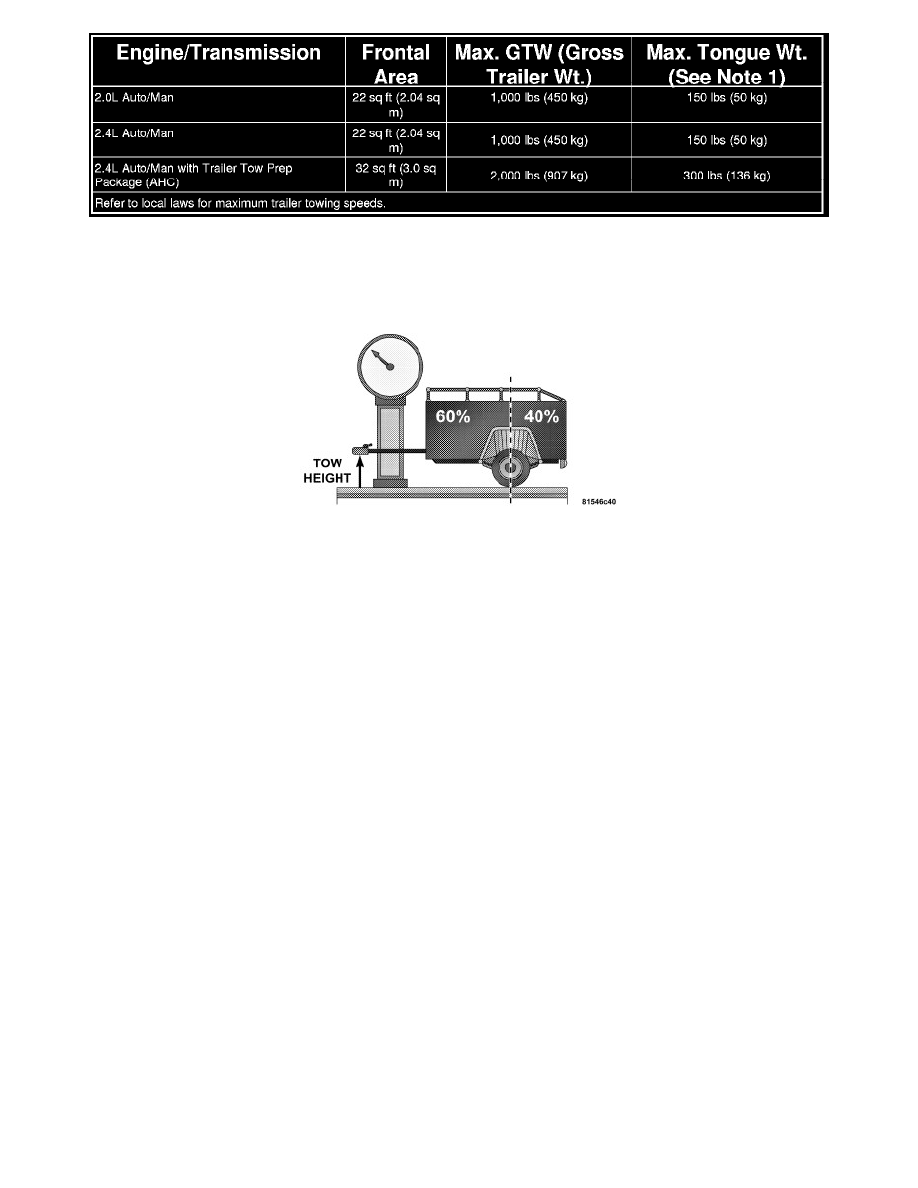Patriot 2WD L4-2.4L (2009)

NOTE: The trailer tongue weight must be considered as part of the combined weight of occupants and cargo, and should never exceed the
weight referenced on the Tire and Loading Information placard. Refer to the Tire-Safety Information Section.
Trailer and Tongue Weight
Always load a trailer with 60% to 65% of the weight in the front of the trailer. This places 10% to 15% of the Gross Trailer Weight (GTW) on the tow
hitch of your vehicle. Loads balanced over the wheels or heavier in the rear can cause the trailer to sway severely side to side which will cause loss of
control of the vehicle and trailer. Failure to load trailers heavier in front is the cause of many trailer accidents.
Never exceed the maximum tongue weight stamped on your bumper or trailer hitch.
Consider the following items when computing the weight on the rear axle of the vehicle:
-
The tongue weight of the trailer.
-
The weight of any other type of cargo or equipment put in or on your vehicle.
-
The weight of the driver and all passengers.
NOTE: Remember that everything put into or on the trailer adds to the load on your vehicle. Also, additional factory-installed options, or
dealer-installed options, must be considered as part of the total load on your vehicle. Refer to the Tire and Loading Information
placard in the Tire Safety Information Section for the maximum combined weight of occupants and cargo for your vehicle.
Towing Requirements
To promote proper break-in of your vehicle drivetrain components, the following guidelines are recommended:
CAUTION:
-
Avoid towing a trailer for the first 500 mi (805 km) of vehicle operation. Doing so may damage the vehicle.
-
During the first 500 mi (805 km) of trailer towing, limit the speed to 50 mph (80 km/h).
Perform the maintenance listed in the "Maintenance Schedule." When towing a trailer, never exceed the GAWR, or GCWR, ratings.
WARNING: Improper towing can lead to an injury accident. Follow these guidelines to make the trailer towing as safe as possible:
Make certain that the load is secured in the trailer and will not shift during travel. When trailering cargo that is not fully secured,
dynamic load shifts can occur that may be difficult for the driver to control. Failure to follow these instructions may result in
serious or fatal injury.
-
When hauling cargo or towing a trailer, do not overload your vehicle or trailer. Overloading can cause a loss of control, poor performance or
damage to brakes, axle, engine, transmission, steering, suspension, chassis structure or tires.
-
Safety chains must always be used between your vehicle and trailer. Always connect the chains to the frame or hook retainers of the vehicle hitch.
Cross the chains under the trailer tongue and allow enough slack for turning corners.
-
Vehicles with trailers should not be parked on a grade. When parking, apply the parking brake on the tow vehicle. Put the tow vehicle automatic
